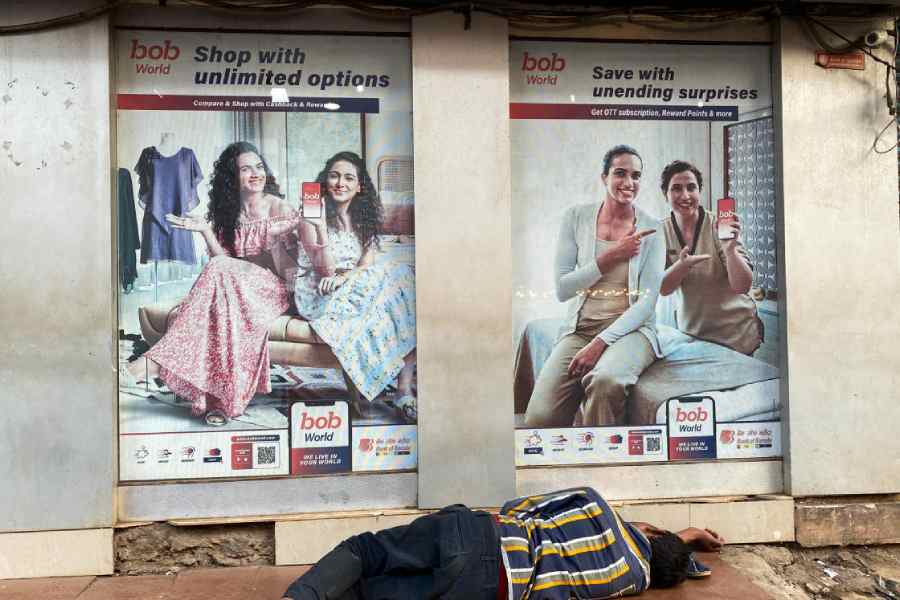Luxurious dilemma
Sir — Complaints about not having enough money are common, especially at a time when inflation afflicts most economies around the world. But a Bengaluru couple seems to have a unique dilemma. The couple apparently earns seven lakh rupees per month after tax deductions and are left with a surplus of three lakh every month even after multiple investments. The pair sought help on social media to find ways to spend their surplus income. Such a quandary is a luxury in a country where the per capita income is only Rs 7,500 per month. The stark difference in the numbers shows the income disparity that afflicts India. While the rich are getting richer and do not know how to spend their excess money, the poor often cannot afford two square meals a day.
Sahinoor Rehman, Delhi
Tragic lapses
Sir — Indian Railways has been playing with the lives of passengers by not filling up vacant posts and overworking its personnel (“Spotlight on vacancies, long shifts” June 18). Preliminary probes apparently indicate that the deceased loco pilot of the goods train disregarded the signal, leading to the accident. But the All India Loco Running Staff Association has rightly asked why the Indian Railways forces loco pilots to work overtime. In a similar accident last year, a loco pilot in Madhya Pradesh worked 14 to 15 hours at a stretch and allegedly caused the crash. One wonders how a rise in unemployment can co-exist with a fall in railway recruitments.
Sujit De, Calcutta
Sir — Just as the Union railways minister, Ashwini Vaishnaw, was settling down in his familiar seat, tragedy struck in the form of a goods train running into and derailing bogeys of the Kanchenjunga Express near New Jalpaiguri. It is high time the government invested heavily in warning systems to avoid such accidents even in the case of human errors. The government must focus more on safety and less on optics like Vande Bharat trains. Vacancies in the railways must also be filled urgently.
Amit Brahmo, Calcutta
Sir — The collision of the Kanchenjunga Express and a goods train, once again, reveals the negligence of the Indian Railways and shows that it has not learnt any lessons from the Balasore train tragedy. Train collisions and derailments have become more frequent. They are followed by enquiries and ex-gratia relief for the victims. But such accidents are a matter of great shame when the technology exists to prevent them. Hundreds of crores of rupees are being pumped into developing bullet trains. Why can the tracks and signalling systems not be updated instead? Safety trumps comfort.
M. Pradyu, Kannur
Sir — Train accidents are becoming common. A similar accident took place in Odisha last year. Common people are losing confidence in the railways. Unless the root cause of these accidents is identified, preventive measures cannot be taken.
Tapan Dutta, Calcutta
Sir — The train accident near New Jalpaiguri raises questions about the proposed deployment of the anti-collision system, Kavach, in the aftermath of the ghastly train accident in Odisha’s Balasore district last year. The ageing infrastructure of the railways frequently contributes to delays and accidents. Opinions must be sought from experts on how train accidents can be prevented.
Ranganathan Sivakumar, Chennai
Wasted lives
Sir — A third-year woman student at the Indian Institute of Technology Kharagpur has died by suicide. This comes even as the mystery of the death of Faizan Ahmed, another student from the same campus, remains unresolved (“‘Gunshot, stab wounds’ on
Faizan", June 19). It is heart-wrenching to see young and talented students dying on campus. There should be routine mental health checks and awareness programmes at such institutions along with readily available counsellors so that we do not continue to lose meritorious students.
Arundhati Das, Calcutta
Sir — A second post-mortem report of Faizan Ahmed who died on the IIT Kharagpur campus has revealed that he was shot and stabbed. How did the first post-mortem miss this? This seems like a cover-up to protect the institution. The victim’s family deserve to know the truth about their son’s death.
S. Kamat, Mysuru
Right lessons
Sir —The excise minister of Kerala, M.B. Rajesh, has criticised the decision of the National Council of Educational Research and Training to alter references to the demolition of the Babri masjid in school textbooks. Education does not fall under Rajesh’s purview. He should thus not speak on this matter. The Kerala government should focus on whether textbooks reflect the state’s cultural and historical perspectives correctly.
K.A. Solaman, Alappuzha, Kerala
Sir — The NCERT chief is right in saying that there is no need to educate school children about riots and violence. However, they should be introduced to such historical instances and taught that riots must be avoided at all cost.
P.V. Madhu Nivriti, Secunderabad
Early start
Sir — Day breaks at least two to three hours earlier in the Northeast than the rest of India. Yet, the region wastes precious daylight hours owing to India’s single timezone. The people of the Northeast have been asking for a time zone for long and this could save close to three billion units of electricity a year, making the region self-sufficient. I hope the government will mull over this.
Noopur Baruah, Tezpur











